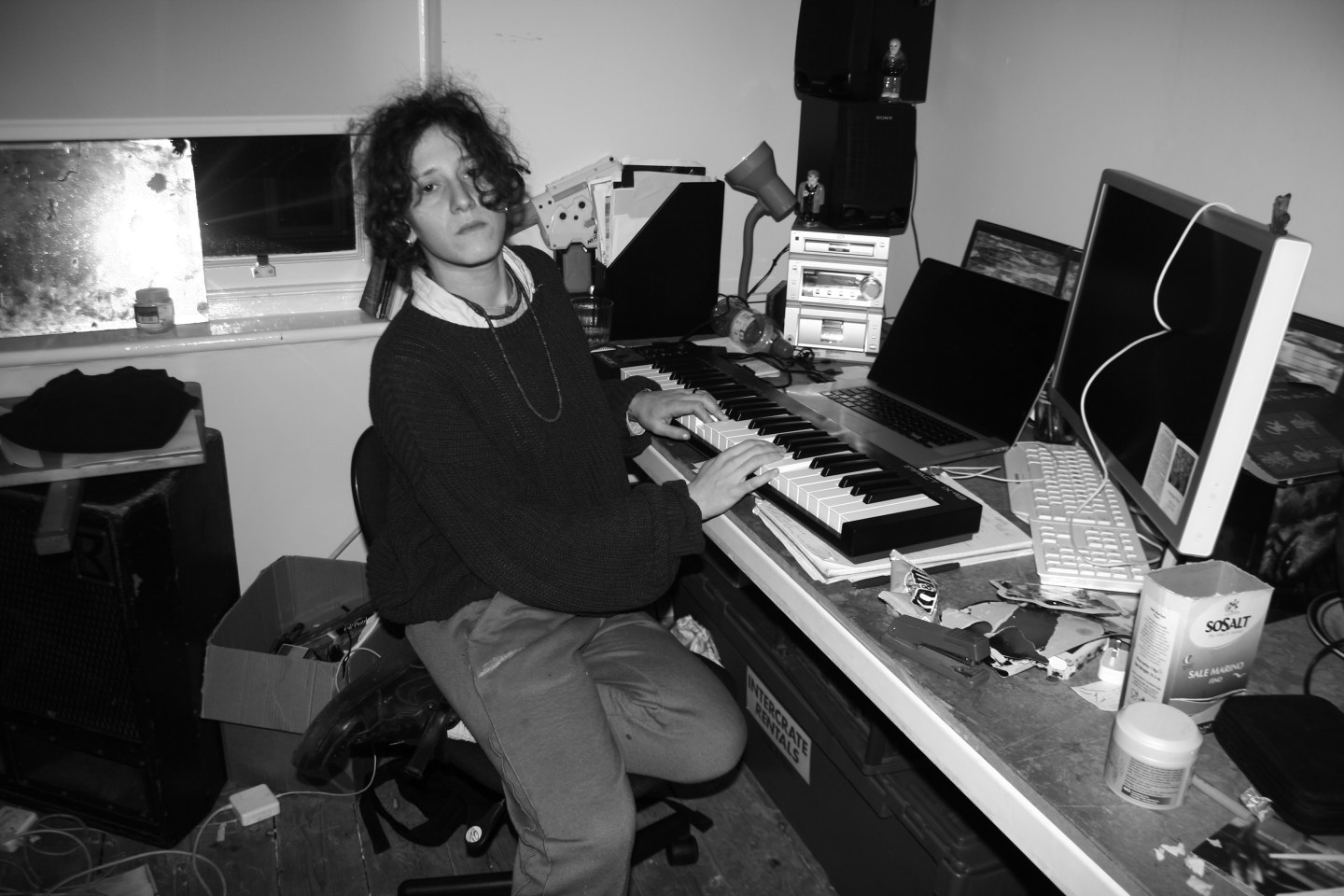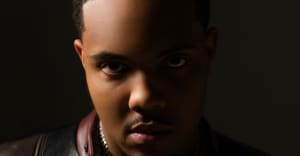How To Write An Unforgettable Movie Score, According To Mica Levi
The composer behind the Jackie and Under The Skin soundtracks discusses taking cues from school bands and films from the ’70s.
 Leah Walker
Leah Walker
Mica Levi writes movie scores that disrupt cinematic tradition. The London-based artist — also known for the anarchic pop she creates with band Micachu and the Shapes and singer Tirzah — first unsettled audiences with her brooding, deeply unconventional soundtrack to Jonathan Glazer’s muted 2013 sci-fi horror, Under The Skin. This December, she returns with her second: an eerily minimalist, string-led suite for Pablo Larraín’s form-breaking biopic, Jackie, in which Natalie Portman stars as the first lady in the days after the assassination of John F. Kennedy. “Most people don't notice the soundtrack in a film,” says Levi modestly, “unless it's got a big theme tune.” Recalling a recent conversation she had with an acquaintance about what it is she does for a living, she says, “It never occurred to him [that someone had to compose the music]. He was like, ‘Oh yeah, I suppose [the music] is in there, isn’t it?’”
But Levi’s scores don’t have this invisible quality; drawing on just a few powerful elements, they lurch and loom through the movies they soundtrack like characters in their own right. Larraín’s Jackie is about a person who must draw on a massive, untapped well of strength in order to move with seeming poise and grace. It’s also a deliberately fragmented narrative told with the flickering instability of a post-traumatic mind. Levi captures all of this with a score that contrasts fragile, lilting flutes and dreamlike vibraphone melodies with an ominous shudder of bass. Just as she did with Under The Skin, Levi uses a relatively small palette of sounds to flesh out a unique and impossibly alive sonic world.
Levi is currently working on new upcoming solo material, and on November 25 will release Remain Calm, an album of eerie improvisations made with cellist Oliver Coates. (That album’s title, fitting as it is for 2016, comes from a sign Coates saw on the London underground telling passengers what to do in the event of a fire.) The FADER caught up with Levi on the phone to get her tips for composing a score that lingers in the memory of its audience as long as the images it accompanies.
Take strides to understand your characters.
MICA LEVI: [Jackie is] a mix of a very strong and independent character and also very good at keeping face. She holds it all together. What happened to her is unusual and traumatic, and that’s what the film shows. It's not very heavily political...It focuses more on the fact that she lost her husband in a violent way, and then his job got immediately handed over in an official way, and she's covered in blood. And she had also lost a couple of children as well. Everything's happening in this sort of official environment, and there's always a couple of people around her. She's never really alone.
[I was inspired by] a mixture of comments, gestures, maybe her mannerisms. Her sweetness and her children and her feelings are like the light flute stuff, and then the strings are kind of her sass.
Choose a limited palette of instruments.
I made sure that I had the instruments locked down, so I knew what their limitations were. Three bassists, eight violins, six violas, six cellos, two flutes. One of the flautists could play clarinet. And then percussion, which included vibraphone. That's one thing that automatically tied it together, that made it sound homogenous.
Write as much as you can at once.
The whole time period [of composing the score] was probably about 4 or 5 months, which is way less than Under The Skin. And it was much less intense. [You should] write a lot in one go, so that you're in the same mindset. If you leave it too long, you might not have faith in it anymore, you might not be in that same headspace.
Take cues from the classics.
I don't have a telly [TV] any more, but I used to watch it in the daytime; you switched on Channel 4 or something, you’d probably get some old film you’d never heard of. All the men in the films wearing suits. All the women have elaborate hairdos. There’s some romance to it, and it moves really slowly.
When I was younger, I used to listen to the soundtrack to the Hitchcock film, Vertigo, by Bernard Herrmann. I also like the The Ghost in the Shell soundtrack, the original. Chinatown's amazing. I like a lot of films from the ’70s. The ’70s is the golden era. I think it's because the producers and directors were all partying together and taking risks on things, coming up with bizarre scenarios. You've not only got like some of the more beautiful, free-spirited films, but you've also got the Star Wars franchise, The Godfather, Clockwork Orange, Andy Warhol films, The Exorcist, the original horrors. You can’t go wrong.
But go beyond the obvious reference points.
I try to be quite strict, and don't listen to anything before I write music, otherwise I would end up just writing that music again. But when I listened back to [the Jackie soundtrack], I thought some of it sounded like John Coltrane. And Morton Feldman. Some of it [is like] a modern jazz quartet.
I was thinking of what [Jackie] might have been like, and if she was going to put on a record what it would be like. Or [how she’d react to] something that she'd like but wouldn't necessarily know about. The instruments I've chosen might have been a little bit cooler than what [Jackie] might've been into at the time. I don't know if she really liked jazz, or experimental music from New York. She probably didn't.
Embrace imperfections.
I did a few things that aren't usually considered to be good orchestration. [For example] I doubled up the flutes. Usually we try and spread harmony across the family of instruments, so that you can't hear that they’re playing together. If you put it in unison, it doesn't sound very professional. You hear the slight difference in their playing. I really like that slight sound — it creates this imperfection. It sounds quite meaningful, and innocent. Like a school band or something.
We also did some quite weird mixing. We put the basses up front a lot. We made sure they were loud, and their entries quite coarse. I tried not to make it too indulgent. [So I wrote] quite a hard bass [contrasting] with the wind and strings, that quite posh, rich sound.
And don't be tied to the screen.
It's good to write music looking out the window, because you’ll probably write better pieces of music. They'll be able to hold their own, away from the screen. It’s also more exciting that way, because then you get these combinations of things that you could never expect. It’s very beautiful if you can write a melody or even write a piece of music that, when you put it over a picture, one part of it also happens to move in some way with a facial expression, without it being intentional. That’s magic.

